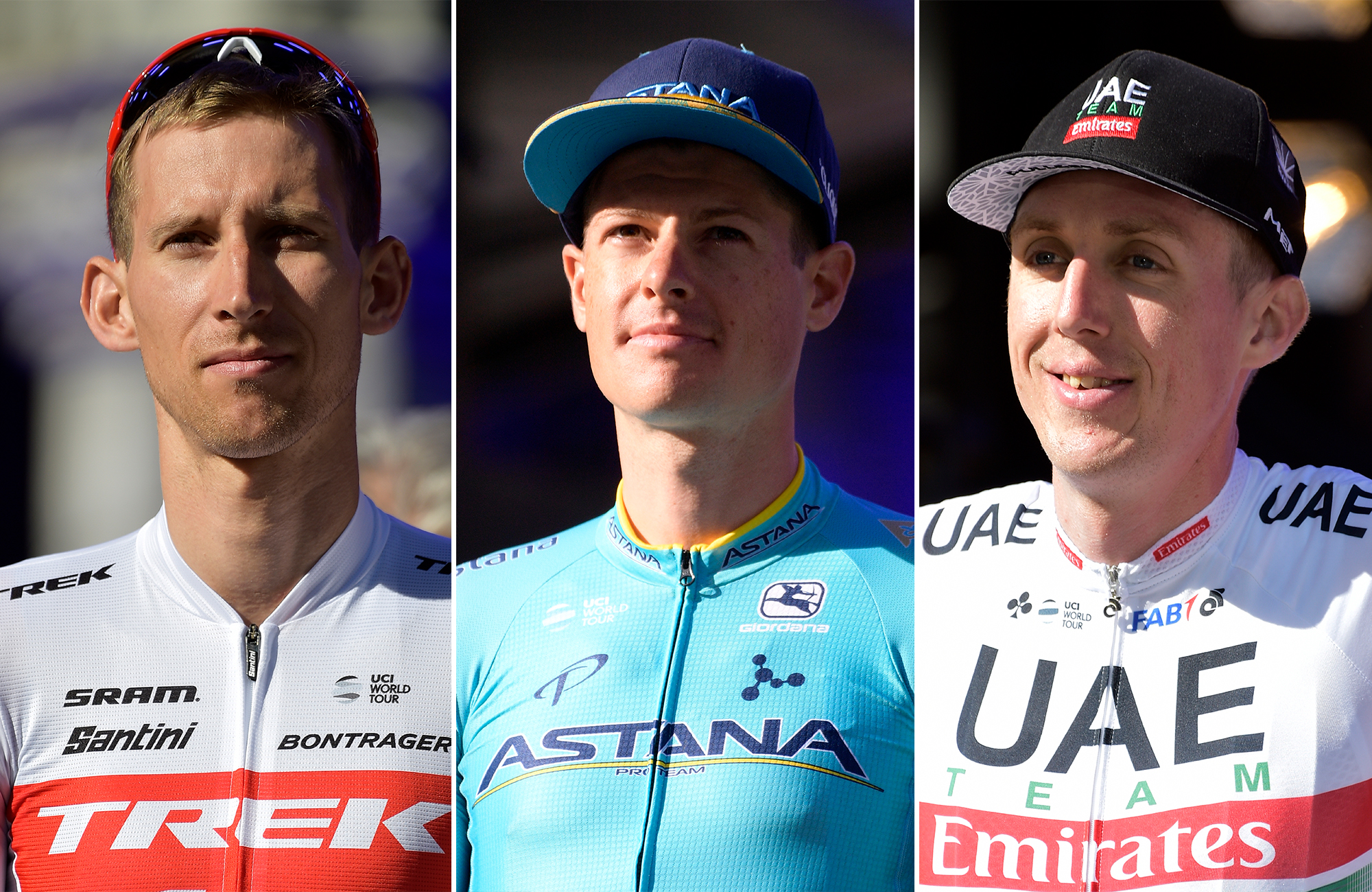'TV is more in control of the race than the UCI': Top riders slam Tour de France motorbikes
Riders have suggested that the future introduction of video camera drones could solve the issue


Bauke Mollema, Jakob Fuglsang and Dan Martin (Getty)
Some of the biggest riders in the Tour de France 2019 say the television motorbikes negatively affect the race and the jury needs to control them better.
Several riders made complaints after the lumpy stage eight to Saint-Étienne on Saturday, specifically taking issue with motos on the downhills.
>>> Here are all the riders fined at the Tour de France 2019
It was not the first time or the first race where cyclists have voiced their concern. At the Tour, however, every issue is put under the microscope.
"The motorbikes should be more in front, they are way to close now. Not only here, but also in the Giro d'Italia it was the same problem," Bauke Mollema (Trek-Segafredo) explained.
"There should be rules for this. A certain distance. On a steep climb, it's not so bad, but on a flat or downhill, the motorbike should be way more in front. The CPA [riders' union] has already been complaining to the UCI. I also went to the car yesterday, my DS went there. But nothing really changes. The televisions are more in control of the race and don't listen to the UCI."
"The riders have the biggest issue with the downhills, that's the most dangerous, that's where speeds are the highest and drafting is bigger," Dan Martin (UAE Team Emirates) said.
The latest race content, interviews, features, reviews and expert buying guides, direct to your inbox!
"We understand that it's something that you can't get away from, you need to have TV and that's what sponsors require and everyone at home wants to see. I just think that more distance needs to be given on the downhill. Maybe the descents could be covered by helicopters or whatever, but at the same time, it's part of the sport, you want to see the riders taking risks and going at speed into the corners."
The UCI governing body has a rule that says the bikes should stay at 10 metres.
"That's a poor regulation if you still get an advantage until 50 metres," said Jakob Fuglsang (Team Astana).
"If you go over the top full gas and the guys in front get just a little bit of draft that can make the difference, but I don't blame the riders. For me it's the motorcyclists that need to get out of the way. They have the engine to do that. The riders just try to go as fast as possible."
Seconds here and there affect the stage, or perhaps the final overall. It is unsure if Thibaut Pinot (Groupama-FDJ) would have gained all the time that he did in stage eight had the motorbikes not been there.
"It makes the race more difficult," Martin continued. "I don't think it affects the results too much. It's more of a safety issue than anything."
"Yes, for sure, riders are really close and races are decided by seconds, not only for the winner but the top five," said Mollema.
"Yesterday De Gendt won by only six seconds, imagine if they took him back if they would've been motor-pacing more. Imagine if he was going for his only Grand Tour stage win of his career, it could change the career of a rider or of the race completely."
What would the riders change to correct the issue? "There will probably be drones [filming the race] in future years, that would definitely help," said Mollema, which Fuglsang also agreed with.
Recent research showed for the first time exactly how much a cyclist gains from riding behind a moto.
A cyclist riding two and half metres behind a motorbike experiences a 48 per cent reduction in drag, equating to more than two seconds gained for every ten seconds, while a cyclist riding 30 metres behind a motorbike has their drag reduced by 12 per cent gaining 2.6 seconds with every passing minute.
If a rider is cycling at 54km/h without a motorbike in front then the presence of a motorbike will allow them to ride at 67km/h, providing a time gain of 14.1 seconds every minute.
As the distance between the motorbike and cyclist increases the advantage becomes smaller, but even when the motorbike is 50 metres away a seven per cent reduction in drag is still experienced, which equates to a gain of 1.4 seconds per minute.
Gregor Brown is an experienced cycling journalist, based in Florence, Italy. He has covered races all over the world for over a decade - following the Giro, Tour de France, and every major race since 2006. His love of cycling began with freestyle and BMX, before the 1998 Tour de France led him to a deep appreciation of the road racing season.
